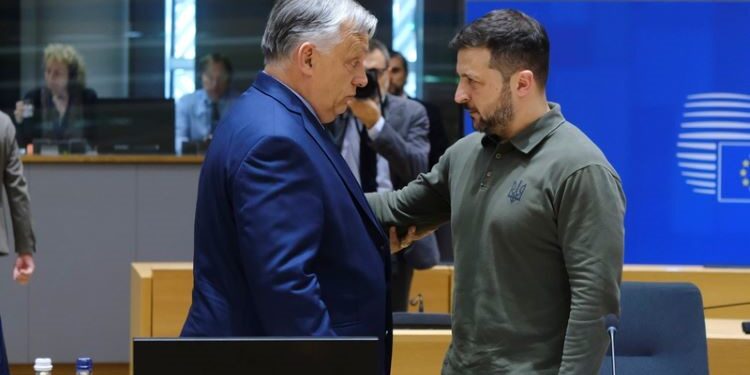Eduardo González
Hungary will hold the rotating presidency of the EU Council from today until December 31. With the motto “Make Europe Great Again” and under the leadership of the ultranationalist Viktor Orbán, Budapest takes over from Belgium at a time of transition, coinciding with the first months of the legislature and the new institutional cycle.
The Hungarian Presidency’s program is based on the common challenges facing Europe – war on its borders, global competition, security problems, irregular migration, the vulnerability of international supply chains, natural disasters, climate change and demographic trends – to establish seven priorities for the next six months: a new European competitiveness agreement, strengthening European defense policy, a coherent and merit-based enlargement policy, stopping illegal migration, shaping the future of cohesion policy, a farmer-oriented EU agricultural policy and addressing demographic challenges.
With the Hungarian replacement of the Belgian Presidency of the EU and with Poland’s next semester, which will begin on January 1, 2025, Spain abandons the trilogue and, consequently, the informal groups that are created for each of the legislative proposals and are made up of three members: one from the Commission, another from Parliament and a third from the Presidency of the Council.
Viktor Orbán
In any case, everything indicates that the Hungarian Presidency is going to be problematic, especially after the results of the recent European elections that showed a rise of the extreme right in much of Europe and taking into account the growing habit of Prime Minister Viktor Orbán to block EU decisions.
Although each EU country fights fiercely for its own interests, when it comes to assuming the presidency of the EU Council it is supposed to put aside its political positions to adopt a more neutral role. During a press conference in Budapest, Hungary’s Minister of European Affairs, János Bóka, stressed on June 18 that Hungary will be “an honest broker.”
In any case, and in what seems like a possible declaration of intentions, Orbán and the Italian Prime Minister, Giorgia Meloni, were the two leaders who at the European Council last Thursday fully opposed the ratification – agreed days before by popular, socialists and liberals – of Usrsula von der Leyen as President of the European Commission, of António Costa as President of the Council and of Kaja Kallas as High Representative of Foreign and Security Policy.
Furthermore, the Magyar prime minister has shown a rather fractious attitude within the EU towards the war in Ukraine almost from the beginning, sometimes helping to delay the adoption of sanctions against Russia, although without actually vetoing them. An example of this was his belligerent attitude during the negotiations for the review of the Multiannual Financial Framework (MFF), necessary to unlock aid of 50 billion euros to Ukraine for the next three years. The Hungarian prime minister finally relented at the European Council in February.
Likewise, in the last European Council of the last Spanish Presidency (in December 2023), the partners had to convince Orbán to be absent (and, therefore, not to exercise the veto) during the vote to authorize the start of the accession negotiations of Ukraine and Moldova. Orbán later explained that he had left the room so that his country would not be burdened with this “bad decision,” but warned that he still had room to block the process.
In recent months, Viktor Orbán has blocked or delayed a record number of foreign and security policy issues that required unanimity, partly in retaliation for the European Commission’s decision to freeze around €22 billion in European funds. recovery because of their doubts about the quality of the rule of law in Hungary. Hungary is currently delaying seven Ukraine-related decisions worth €6.6 billion.
As a result, some Member States have called for a tougher approach towards Budapest and have even taken advantage of some legal loopholes to circumvent the Hungarian blockade. The latest example of this took place during the EU Foreign Affairs Council (FAC) last Monday, in which Hungary showed its clear rejection of the release of a first tranche of 1.4 billion euros to help Ukraine from the Russian asset interests frozen.
The Hungarian Minister of Foreign Affairs, Peter Szijjarto, expressed his indignation at the approval of this measure without the unanimity required for this type of issue (“a red line has been crossed, such disdain for European rules has never been shown before”, declared), but the High Representative, Josep Borrell, justified this decision with the argument that Hungary had never abstained during previous discussions on the use of frozen assets and could therefore now no longer oppose it.






